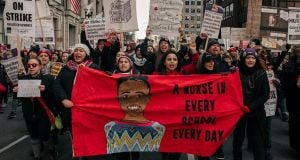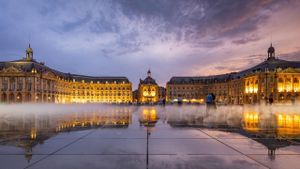The political climate in Lebanon is becoming increasingly tense as the presidential election, initially scheduled for this month, faces significant delays. This political impasse is raising concerns among citizens and observers, alike.
Lebanon has long been plagued by political instability, with deep-seated divisions among the major political factions. The current crisis is but another chapter in the country's tumultuous political history, as political leaders continue to bicker rather than forge consensus. "The political impasse shows no signs of abatement, as leaders bicker rather than work toward stability," notes analysis from The Daily Star.
At the heart of the issue lies the failure of the Lebanese parliament to elect a new president. Traditionally, this election carries significant weight, universally recognized as pivotal for maintaining national governance. Multiple attempts to convene parliamentary sessions have failed, reminiscent of previous occasions where political maneuvering hampered the legislative process.
According to experts, the ramifications of this delay are potentially severe. "We find ourselves at the brink of governmental paralysis, which could have dire consequences," warns commentary from Al Jazeera. The inability to achieve the necessary consensus raises doubts about the political elite's commitment to Lebanon’s stability.
Historically, Lebanon's presidential elections have been marred by complications stemming from external influences and internal schisms. The country’s leaders must navigate not only their factions' interests but also the expectations of foreign powers, particularly those of neighboring countries and international observers. Past experiences suggest there are often more behind-the-scenes dealings than public negotiations, leading to frustrations among citizens who are left to grapple with the fallout.
Lebanon’s citizens, weary of political stalemates, express concern over their future. Public opinion is one of relying on leaders to solve issues, and the current status quo has left many disillusioned. The current crisis serves as yet another reminder of Lebanon's fragility as the nation grapples with economic hardships compounded by governance challenges.
Efforts to find common ground have been put on the backburner, as parties remain entrenched in their positions. The situation has begun to exhibit hallmarks of potential unrest, fostering fears of civil discord if solutions are not sought. Political analysts suggest consistent dialogue is necessary, but whether entrenched factions will prioritize such discussions remains unclear.
Looking forward, the priority must be re-establishing faith in the political process to prevent societal fractures. Various factions bear the responsibility of acting responsibly to avert exacerbation of the already tense political scene. Suggestions for bridging the divide have included proposals for reaching out to community leaders and stakeholders to pave the way toward tentative understandings. Such grassroots efforts could facilitate the comprehensive dialogue needed to mend divides.
There's also the prospect of international mediation to guide the political factions toward resolution. Given the global community's stake in Lebanon’s stability, external pressure could play a role alongside internal dialogue. The pivotal task for Lebanese politicians will be to demonstrate the ability to act on behalf of all citizens, moving beyond entrenched positions for the nation's greater good.
The coming weeks will be telling as to whether Lebanon's political leaders can find resolutions to the current impasse. Despite the complex challenges involved, failure to act soon could draw Lebanon closer to crisis situations, not just politically, but economically and socially as well. The path toward renewed stability lies within the hands of those who govern and the citizens who deserve representation and peace.



